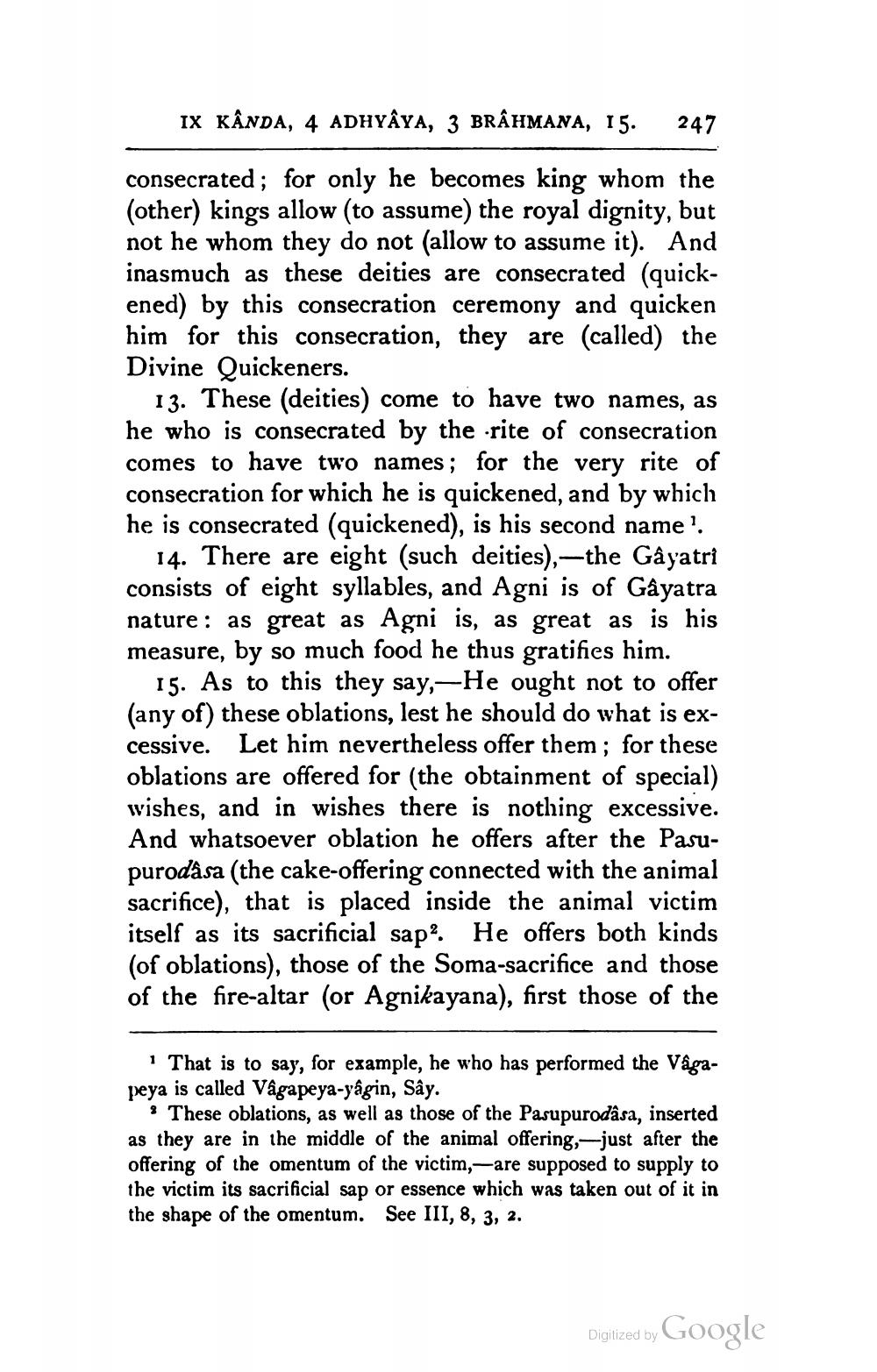________________
IX KÂNDA, 4 ADHYÂYA, 3 BRÂHMANA, 15.
247
consecrated; for only he becomes king whom the (other) kings allow (to assume) the royal dignity, but not he whom they do not (allow to assume it). And inasmuch as these deities are consecrated (quickened) by this consecration ceremony and quicken him for this consecration, they are (called) the Divine Quickeners.
13. These (deities) come to have two names, as he who is consecrated by the rite of consecration comes to have two names; for the very rite of consecration for which he is quickened, and by which he is consecrated (quickened), is his second name?
14. There are eight (such deities),-the Gâyatri consists of eight syllables, and Agni is of Gâyatra nature: as great as Agni is, as great as is his measure, by so much food he thus gratifies him.
15. As to this they say,—He ought not to offer (any of) these oblations, lest he should do what is excessive. Let him nevertheless offer them; for these oblations are offered for (the obtainment of special) wishes, and in wishes there is nothing excessive. And whatsoever oblation he offers after the Pasupurodåsa (the cake-offering connected with the animal sacrifice), that is placed inside the animal victim itself as its sacrificial sap?. He offers both kinds (of oblations), those of the Soma-sacrifice and those of the fire-altar (or Agnikayana), first those of the
That is to say, for example, he who has performed the Vagapeya is called Vågapeya-yagin, Sây.
3 These oblations, as well as those of the Pasupurodása, inserted as they are in the middle of the animal offering, just after the offering of the omentum of the victim,-are supposed to supply to the victim its sacrificial sap or essence which was taken out of it in the shape of the omentum. See III, 8, 3, 2.
Digitized by Google




